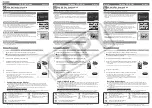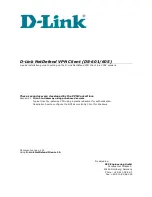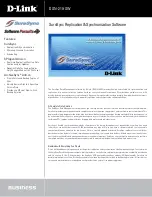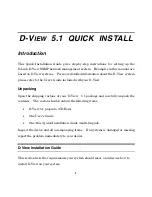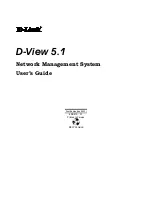
Software
Crestron
SIMPL+
CHANGE output_value
PUSH button1, button2
{
<statements>
}
A useful feature of SIMPL+ event functions is that a single input can have more than
one event function defined for it. This makes it possible to write one event function
for a specific input only and another event function for a group of inputs. Refer to the
following example.
PUSH button1
{ // code here only runs when
// button1 goes high
}
PUSH button1, button2, button3
{ // this code runs when any of
// these inputs goes high
}
The Global Event
A special form of event exists, which is triggered anytime any of the inputs to the
SIMPL+ module changes. This is simply a shortcut for having to build a compound
event manually which includes all the inputs separated by commas in a CHANGE
event declaration. Access this special event function by using the EVENT keyword,
as follows.
EVENT
{ // this code runs anytime anything
// on the input list changes
}
Be careful when using this global event function. If the user has a SIMPL+ program
in which a change on any input causes the same code to execute, this type of event is
useful. However, if additional inputs are added at a later time, remember that this
event function exists, and is caused when these new inputs change as well. This may
not be desirable.
Function Main
Main is a special case of a user-defined function. The Main function is executed
when the control system initializes (boots up) and is never called again. In many
cases, the main function is used to initialize variables; it may not contain any
statements at all.
However, in some cases, a loop may be placed in the Main function to perform a
continuous action. Refer to the following example, and note that this example uses a
while loop construct, which is discussed in “Controlling Program Flow: Loops” on
page 27.
Function Main()
{
x = 0;
// this code executes only once
12
•
SIMPL+
Programming Guide – DOC. 5789A































